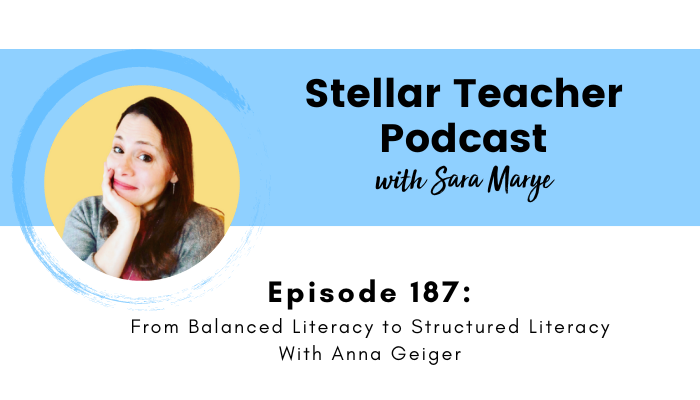
Click play below to hear a structured literacy approach:
If you’ve been teaching literacy for a while, you know all about the balanced literacy approach to teaching reading. However, you also know that the approach is outdated and not effective in teaching students how to read. And no one knows this more than my guest, Anna Geiger. A former balanced literacy teacher herself, Anna eventually found her way to the science of reading. In today’s episode, she is sharing her journey and why she believes in a structured literacy approach to reading.
When you’ve learned about and taught something for so long, it’s hard to imagine a different way of doing it. When Anna first started hearing about the science of reading, she was hesitant to make the switch. But after engulfing herself with information and learning more about it, she gained a new perspective. Now having a structured literacy approach, Anna shares how she’s sharing her knowledge through her new book, Reach All Readers.
They say an old dog can’t learn new tricks, but if you’re in education, that doesn’t apply. Approaches are constantly changing, and more effective instruction and strategies are emerging all the time. Going from balanced literacy to structured literacy, Anna is open in her experiences and wants to share her knowledge with you.
Meet Anna
Anna Geiger
Anna is a former teacher, creator of The Measured Mom website, host of the Triple R Teaching podcast, and author of Reach All Readers.
In this episode on structured literacy, we discuss:
- Anna’s journey from balanced literacy to structured literacy
- How the science of reading played a big role in Anna’s instruction shift
- Ways instruction and teaching students to read changes when implementing a new approach
- Anna’s process of writing a book and both the challenges and triumphs she went through in writing it
Resources:
- Pre-order Anna’s book, Reach All Readers
- Listen to Anna’s Podcast, Triple R Teaching
- Sign up for my FREE 5-day revision email series
- Sign up for my Private Podcast: Confident Writer Systems Series
- Check out the Stellar Literacy Collective Membership
- Check out my Free Literacy Workshop, The Time Crunch Cure: Create a Literacy Block That Fits it All In and Achieves More
- If you’re enjoying this podcast, please leave a review on Apple Podcasts!
Related episodes and blog posts:
- Episode 136, What Does the Science of Reading Look Like in Upper Elementary?
- Episode 88, Science of Reading Q&A
- Episode 85, What is the Science of Reading & Why is it Important?
- The Science of Reading: Building a Foundation for Successful Readers
Connect with me:
- Join my newsletter
- Shop my TPT store here
- Instagram: @thestellarteachercompany
- Facebook: The Stellar Teacher Company
More About Stellar Teacher Podcast:
Welcome to the Stellar Teacher Podcast! We believe teaching literacy is a skill. It takes a lot of time, practice, and effort to be good at it. This podcast will show you how to level up your literacy instruction and make a massive impact on your students, all while having a little fun!
Your host, Sara Marye, is a literacy specialist passionate about helping elementary teachers around the world pass on their love of reading to their students. She has over a decade of experience working as a classroom teacher and school administrator. Sara has made it her mission to create high-quality, no-fluff resources and lesson ideas that are both meaningful and engaging for young readers.
Each week, Sara and her guests will share their knowledge, tips, and tricks so that you can feel confident in your ability to transform your students into life-long readers.
Tune in on your favorite podcast platform: Apple, Google, Amazon, Spotify, Castbox, and more! If you’re loving this podcast, please rate, review, and follow!
Podcast (stellar-teacher-podcast): Play in new window | Download
Sara
Y’all I am so excited for today’s podcast episode because I have my dear friend Anna Geiger, who is a fellow literacy lover, podcast host, and she is someone who I would refer to as an expert in the science of reading, even though she says she is still on her own learning journey as well.
Sara
Now Anna is the host of the Triple R Teaching podcast, and she is the creator behind The Measured Mom. And if you are not already a part of her online world, you will want to be after listening to today’s episode.
Sara
In our conversation, Anna shares what her literacy instruction was like as a balanced literacy teacher, what really led her to rethink balance literacy. And she shares a lot about her journey to learning more about structured literacy and the science of reading. And so much of what she shared, I was able to connect to on a personal level, and I know you will as well.
Sara
If you enjoy today’s conversation, then you’re really in luck, because Anna is coming out with a brand new book, Reach All Readers, and she wrote this book with you in mind. She really wanted to give teachers a resource that would not only explain the science of reading, but understand how to practically apply it in their classrooms.
Sara
Her book has been described as not too sciency and really easy for teachers to understand, especially if this is your first science of reading book. So if you are looking for another guide, and encourage her to help you along your journey as a literacy educator, let me introduce you to my friend Anna.
Sara
Hi, Anna, I am so excited to have you on the show today. Thank you so much for coming on as a guest.
Anna
Thank you so much, Sara, I’m so happy to be here.
Sara
You are seriously one of those like you are a science of reading expert and guru and my mind. And I’ve learned so much from your podcast and just conversations that we’ve had. So I am excited that my audience now gets a chance to learn from you as well.
Anna
Well, thank you.
Sara
So I know that you have a new book coming out, which is super exciting. I know that you are very intentional and thorough, and I can’t wait to talk about that a little bit later on in our conversation. But before we get to sort of your knowledge and experience with the science of reading, can we back up a little bit and talk about what did your literacy teaching look like when you were a balanced literacy teacher?
Anna
Yeah, so I was the biggest fan of balanced literacy, the biggest balanced literacy disciple. Science of reading was not on my radar way back then I was a teacher in the early 2000s. Lucy Calkins was what I read when I was on my spring break, you know, big into Fountas and Pinnell. My favorite book was Sharon Tversky’s book, I think it’s called From the Ground Up, which is basically how to do a reading workshop model without a lot of explicit instruction. And a big fan of Ricci Robin too she was big in the whole language days.
Anna
And you know, when I went to graduate school, I learned about three cueing learned about using leveled and predictable books with beginners, and those were the things that I did. I really didn’t have a lot of patience for explicit programs, I thought they were boring. And I also didn’t like decodable books. Now at the time, there weren’t a lot of great choices. Now. 20 years later, we’ve we’re swimming in decodable books, but I wasn’t interested in them, because I didn’t really think they were important.
Anna
And so really, my teaching was very much I would say reading workshop a little bit more than the guided reading model, but very much using reading records to figure out what level my students were at. And then having them work through those predictable books, and then basically just move through the levels.
Anna
Like if someone would have asked, well, what are you teaching them? I would have just said, Well, I’m teaching them to read and I want them to move through the levels. Like I didn’t really understand what the levels meant, because of course, they don’t really mean much of anything.
Anna
And I remember actually one of my students parents at a parent teacher conference, she was telling me that she was helping her daughter learn to read before she went to first grade, and she couldn’t find books that teach a particular phonics pattern. And I was I was literally horrified. I was like, why would you do that? Why would you to limit with the words in the book. That’s horrible. Because of course, I thought that kids could get to words in a variety of different ways. So yeah, pretty heavy, heavy duty balanced literacy.
Anna
And then when I took about five years away from education to get my family started, wasn’t really thinking about any of that. I almost thought I should just sell all my teaching books on eBay, because I just didn’t think I was ever gonna get back into it. And then in 2013, I started a website called The Measured Mom and that was going to be a parenting website because I was trying to be more patient more measured and that was supposed to help me do that. Because I had four little kids at the time my old was 5. And she had three little brothers and I really needed an outlet. So that’s why I started it.
Anna
And then it quickly turned into an education website. And then over the years, it’s become a resource for pre K through third grade teachers. But I was very happy swimming in balanced literacy. And that was what I taught to teachers. It was what was in my original online course was a balanced literacy methods.
Anna
And then I had a blog post all about three queueing, like, how it works in and why we need to use queues or teach kids to use queues as they’re reading. And someone commented on there and she said, Hey, have you seen this article by Emily Hanford? And I was at a loss for words, and no, I hadn’t, a couple people sent me to it, I went to read it. And I just blew it off at first, but it was it did bother me, because she very clearly had problems with three queuing. And I’d never heard that before.
Anna
And so that led me down a rabbit hole, which I wasn’t happy to go down at first. But it was great, because a lot of people sent me to some really important books, and I just started swallowing and reading everything I possibly could watching everything I could, listening to hours of podcasts. And then that led me to continue my education. And that’s where I am now. I let go balanced literacy. And now I’m very big believer in structured literacy and learning more about the science of reading. I love
Sara
I love it. And I feel like we have very parallel or similar experiences this as far as you know, balance literacy, and hearing you talk about it. I remember, you know, I mean, obviously teaching the guided reading levels. And similarly, it’s like, What are you teaching? It’s like, okay, well, we’re trying to get to a level J, or we’re trying to get to a level like N, but like, what exactly does that mean? And it was really more so about like teaching individual texts, and less about like, teaching actual, like reading skills.
Sara
But I remember the very first time I ever heard about the science of reading, it was on a workshop that I was giving. And I don’t think it was like a very balanced literacy specific workshop. I think it was more just about like, engagement or whatever. But somebody asked, Is this aligned to the science of reading? And I was like, I have no idea what the science of reading is, like, I’d never heard of it. But I had this like moment of panic, because I’m like, Oh, my gosh, is there like a new way to teach reading? And like, have I been doing it wrong.
Sara
And similarly to you is like, I don’t I don’t want to go down this rabbit hole. Like, I don’t want to start learning about this for fear that I will have recognized that I had been doing something wrong. But I think it’s one of those things that once you start learning about the science of reading and structured literacy, it’s hard to unsee it right, you can’t go back because everything just sort of clicks and makes sense.
Sara
So I love that you sort of had this moment of like, okay, here’s this article, it’s really causing me to like rethink balanced literacy. Are they’re like, really impactful learning experiences, or, you know, whether it’s PD books or courses, or what are some of the aha moments that you have had in your structured literacy science of reading journey?
Anna
A lot of it comes down to teaching my youngest to read. So we have six kids, and I taught them all to read before they went to school, because I thought I should get to do that. I’m their mom. And, and that’s really fun to do. And I would say all six of my kids are definitely the kinds of kids that can learn to read with balanced literacy. You know, they’re in that 40% of kids that are going to learn to read no matter what you do. And so they did all learn to read, even though I wasn’t doing a lot of explicit instruction, I did, I did teach them phonics, and I did use some decodable books, but that was not our focus.
Anna
But with my, my youngest, I thought, Alright, I’m gonna give this a try. I’m going to, I’m gonna use decodable books, and I’m going to explicitly teach him these things. And I was actually getting Orton Gillingham certified, and he was my student. So doing that really helped me practice all this explicit teaching that I just wasn’t used to it was just a really new thing.
Anna
And I remember the first day that I sat down with him, he was just learning to read CVC words, and I had a decodable book and a level book. And I thought I wasn’t ready to get rid of the level books because I really thought that they built fluency and comprehension. I didn’t really understand the continuum. And so I had a misunderstanding there.
Anna
And he read the decodable book, you know, very slowly. And then I gave him the level book. And I didn’t know when he came to words, he didn’t know he was trying to sound them out. But he couldn’t do their way too hard. And I was like, well, well, you have to use the picture or, and then I realized this is so incredibly inefficient. Why am I doing this? But I had never seen that before.
Anna
But it was a process. Like when he first started reading the decodable book, my husband said to me later who he had seen me teach all the kids to read, and he wasn’t being critical, but he was just saying it almost made me feel sad to listen to him reading like that, because it sounds so slow and painful. That wasn’t what he’d been used to hearing. You know, it was little hard for me too at first get used to that.
Anna
But he would take those decodable books. You know, Sam, I am Sam, Sam, it was a flyleaf book, I think. And he would just go sit on the couch and read it and read it to himself. So there was no, there was no problem from his perspective. It was we as adults had to understand what the brain has to do to learn to read into except the process that has to occur for that to happen. So I would say that was a big one.
Anna
So another one for me was and I will definitely not call myself a real expert on how all the brain stuff works. I’ve watched Stanislaus to Hans YouTube videos countless times and and watched everything I can about it. I still don’t think I understand it. 100% But just the basics, you know, understanding that there’s no no single part of the brain that set up for reading and that we have to create these circuits.
Anna
I remember someone saying how, like you go back and across a field one time and there’s not much there in terms of footprints, right like a tall a field of tall grass. But when you go over and over and over it, you make a path. And the same thing is true with this explicit systematic repetitious instruction, we’ve got to do that to build those neural circuits in the brain. And understanding that really helped me too to understand the importance of practice, practice, practice, and that what we’re doing has to have a purpose.
Anna
And that orthographic mapping was another one, when I understood that you map words by connecting the sounds and the letters and the meaning. That made a big difference, because I realized that my, my using the level of predictable books, my goal was not that they remember the word in the future. That wasn’t the point. The point was to understand the story and be able to talk about it. And I thought that was success.
Anna
But what I didn’t understand was I was completely bypassing orthographic mapping, because if they could get to the word by the picture or the context, but they couldn’t read it tomorrow, what exactly had I accomplished? So those I think were the big things for me.
Sara
Yeah, I love that. And I love that you were like, I’m going to use my son as almost like a guinea pig. Like, is this going to work? But I mean, to your point, I remember. So I spent most of my teaching career as an upper elementary teacher, but I was a first grade teacher for a year. And so I’ve gone through the process of trying to teach kids to learn how to read.
Sara
But I remember, you know, we’re having the level texts, and, you know, students getting into words like elephant or dinosaurs, and to your point, like not being able to actually read those words, but it’s like, no, look at the picture, or, you know, guess which word would make sense. But, you know, at the time, I remember not thinking that, you know, it’s like, oh, yeah, this is what we do. Like, this is how we teach reading.
Sara
But it’s like, if you think about it, that is so inefficient, and also just does not make sense when our goal is actually to teach kids how to read, like, why are we having them rely on pictures or, you know, guess words, which, you know, can support their understanding of the meaning, but when it comes to it, they have to be able to actually read the words.
Sara
I’ve loved learning about the science aspect as well, I feel like I can never like regurgitated the way that I would like to, but it is so fascinating to really understand how the brain learns to read and that really explicit and the repetition is so so necessary. So I just love that I love hearing how really, you have gone from, you know, the biggest fan of being balanced literacy to now being a huge advocate for the science of reading and structured literacy.
Sara
Which kind of leads me to you are really in the process of finishing up writing your very first book. So you know, where along your journey did you make this decision? Like, okay, I need to write a book to share with teachers so they can learn more about structured literacy as well. Yeah,
Anna
Yeah, so it kind of dropped in my lap. There’s a publishing company, Josie Bass, they published the writing revolution and some other books, Doug Lemov, I’m not sure if that’s how you say his name. But he’s, he’s pretty well known Teach Like a Champion, like many of his books are published through them.
Anna
And what they do is they kind of just find online writers like me and reach out and say, Hey, would you be interested in submitting a book proposal for us to consider? And so they sent that and at the time, I was, I was hoping to get into a pretty competitive program. So I said, Well, I would love to write a book, but I have to see if I get into this program, and and I was in the end, not accepted. So I thought, well, I guess I’m writing a book. So I wrote back. Yes. So I said, okay, they really want you to really think through exactly what you’re going to do.
Anna
And the proposal is pretty detailed. Like, they kind of want you to lay out the chapters and everything. And writing a book has always been back my mind, I really love writing. But you know, life. By this point, all six of our kids were in school full time. So as of this recording, my youngest is in second grade. So by that time, he was in first grade, and it was the first time ever in my life, and not in my married life, basically, almost that I had part of the day to myself. And so I felt like this is something I could do, I have the potential to do this now.
Anna
And what I really wanted to do was part of it was clarifying for myself. I know, I’ve heard Lynn Stone, she’s written a lot of books. And she said that a lot of her book writing is for her like to help her clarify everything for herself. And because you really when you write, well, you really have to think things through.
Sara
Yeah, I can see that how it’s like the writing process really just like solidifies it for you as the writer.
Anna
Yeah. So it required me to really think through all the aspects of teaching reading, according to the science of reading, and really lay it out. So I wrote the book to really be I would never say a one stop shop because if you say my bookshelf, I don’t believe in that. Hundreds of books about the science of reading, and I don’t think anybody should just read one book.
Anna
But if they’re looking for a place that really in a gentle way, because I was a balanced literacy teacher explains the problems with balance literacy, not all but some, and counteracts that with what we’ve learned from research, and then shows how to apply that to your everyday teaching. That is what the book is.
Anna
You know, at the beginning, I talk a little bit about my journey out of balance literacy. And then I really also believe that it’s more than just as people like to say the big five right phonemic awareness, phonics, fluency, vocabulary, comprehension, it’s also how you teach.
Anna
So I do start out by talking about the science of learning. First, I give a background into the science of reading and how we got here, like the reading words and all that but then I talked about the importance of explicit instruction of scaffolding of choral responses. All the things we’ve learned from research work really well in a classroom setting. And then I walk through the Big Five in addition to oral language to talk about I start with that and then I work through each one and I have a summary about the science of reading in each of those areas. And then I go into a lot of practical stuff.
Anna
And at the end, I also talk about linking reading and writing. So that’s one chapter. Because of course, you could write a whole book about teaching writing. But I think it’s important to understand how we teach students to write about what they read. So then there’s also a chapter on dyslexia, which I think is really important for teachers to understand.
Anna
When I was a teacher, like, that was just a scary word. I didn’t know what that meant. And I assumed, well, there’s nothing I could do about that, like, I’m not qualified. And I want teachers to know that everyone, once you understand the science of reading and how to give explicit instruction, you know, what kids with dyslexia need, like you really do, you could be trained in additional program to administer, you could do that. But what kids with dyslexia need is just more more and better instruction.
Anna
And so you know, more scaffolding, more explicit instruction, we’re breaking things down. And that’s what those programs can help you do. But there’s not something magical that they need to learn that the rest of the students don’t need to learn. And that was really eye opening for me. So I want to communicate that.
Anna
The last chapter, though, is about MTSS. Because there’s really a system that you need. You know, in addition to having all this knowledge, we need a system for what to do for kids who need extra help, because we know that even when you’ve got a great teacher, even when you’ve got a great program, some kids will need additional instruction, right? A good percent and possibly 20% of kids are going to need more. So how do you have a system in your school? How do you set that up so that the kids that need extra support, get it?
Anna
So that’s the book. And I’ve gotten a few endorsements so far, and they’ve been very kind, I think the last person said, it’s not sciency very practical. And so that’s what I hope that it does for teachers.
Sara
I love that. And I mean, what I feel like a great gift you’re going to be giving to teachers just in the field, because, you know, like you said, there are hundreds of books out there. And I love recommending multiple books.
Sara
But I think one of the things that is so great is one if you start with a book that, you know, to read the description that you just gave, it’s not very sciency, but can really break down and explain what the science of reading is some practical ways to put that into place into a classroom, I think that can help teachers then, you know, build their knowledge for when they continue their own learning. And the next book they read will be so much easier for them to digest because they have the foundation that you’re providing them in your book.
Anna
Yeah, absolutely.
Sara
Was there a specific chapter that you either really enjoyed writing or, and or I guess a specific chapter that was really challenging for you to write?
Anna
Yeah, that’s interesting. So I would say, a chapter I really loved writing. Well I enjoyed writing it all I do like writing but the phonics chapter is by far the heftiest and I in the introduction explained, it’s not because phonics is the be all end all are the most important thing. It’s because we have a very rich and complex language. So there’s a lot to say.
Anna
So, you know, there’s a lot of charts in there that I think will be helpful for teachers like a chart that shows all the graphemes in order from most to least common things like you know, charts that walk you through, like there’s a phonics lesson template, but there’s just, I don’t know, I love reading and spelling. And so learning more about that, and it was fun for me.
Anna
I would say the hardest chapter for me was the last one, the MTSS chapter because this was something I learned about in some postgraduate work at Mount St. Joseph. But it wasn’t something that was part of my understanding about teaching.
Anna
I would say like three years ago, or so I went to a presentation. And the teacher was saying how she had basically she was a principal at a school with with a lot of challenges. So like, it was a crazy high number, but I think over 50% of their students were actually in foster care. So we’re talking, you know, not a great setup. I mean, it was going to be hard no matter what.
Anna
But they turned their numbers around so that by the end, almost 100% of kids were reaching benchmark. She, she just kept talking. And I really enjoyed listening to her. But she just kept using this word System System System. And when I was listening, I was thinking, what program did you use? What program I really want to know. And now I understand it’s not about the program. I mean, that is important, very important. But it’s not all about the program. It’s about so many other things.
Anna
And so after that I did learn about systems. And so I wrote that chapter. And I thought, Well, I hope we’ve got it right. And I went by team, as a team of five teachers that work with me, they’re not teaching in the classroom now. But they have all been teachers. And in addition to having other people read the chapters, I had my whole team go through the whole book, back and forth, back and forth, back and forth. And that chapter was a hard one to wrestle out because they kept saying, I don’t understand this part. I don’t understand this part. And I had to keep reworking it.
Anna
So someone who was new to this would understand it. I gave it to Stephanie Scholar who wrote the foreward for the book, she had agreed to review that chapter before I asked her to write the foreword, and I thought, Oh, I hope I got this right. Because she’ll tell you like it is. Yeah. So I was really nervous about hearing back from her and she actually wrote back and said, I’m usually very picky, but this is perfect. Like you’ve nailed it. And that was amazing and really, really thankful for that.
Anna
So I think the process of working with a lot of different people to write the book was challenging and something I didn’t always want to do it’s easier just to keep to yourself and hope you got it right then put it out there but let’s just say it’s well vetted. The book is not just my ideas and and no eyes on it. I’ve had lots of feedback and that’s been really helpful.
Sara
I said this at the beginning, but you’re so I just feel like intentional and thorough and so I know that this book, like you said is is going to be very helpful for teachers because it has had multiple eyes on it. And you have gone through the process probably in a much more detailed way than many other writers of books out there. I am so excited to share this book with my audience I know I’m going to ask you to share a link where where teachers can find this.
Sara
But one of the things that I just appreciate about you and I would encourage all of my listeners to go listen to your podcast, go follow you on Instagram and order your book because you’re so gracious and understanding I think about where teachers are at in their own journey and constantly encouraging them to grow. And I love just hearing you talk about your own experience, because I think so many teachers can resonate to, you know, having that sort of strong connection to balance literacy, and then having to like, rethink it.
Sara
And the fact that you were just so open with your own journey, I know is a huge encouragement to other teachers. So thank you for coming on, and being willing to talk about your journey. And especially thank you for talking about your book. Like I said, I am so excited to read it. So if my audience wants to be able to get a copy of this book, where can they find it?
Anna
So people can order the book through the link that you’ve listed here in your show notes, so that it should be right there. So you can click there. And once you order it through Amazon or your favorite seller, go back to that page and enter your order information number.
Anna
So once you enter your order confirmation number, then you’ll get instant access to my science of reading mini course, which has three modules. The first module is basically background in the science of reading. What’s it all about? The second module is a list of answers to frequently asked questions, you know, things like, is there a best scope and sequence spoiler alert, there is not a perfect scope and sequence. Things like what you know, how long should my students be reading decodable books, things like that.
Anna
And then the final module is basically get started, here are five things you can do to get started and it does include free printable resources to get you going. So I would definitely preorder the book is coming out July 23. So if you preorder anytime before that, but the sooner the better, you can get started. I’d be honored if you consider it. And thanks so much for hearing my story.
Sara
Oh, absolutely. And I thank you for coming on again today. And like I said, we are going to encourage our listeners to get your book because I know that it is going to be just filled with so much encouragement and knowledge and resources to really help them you know, bring structured literacy into their classroom.
Sara
So Anna thank you so much for being on today. I really feel so honored that you’re willing to come on and you know, share your story with my audience. And hopefully we can connect again sometime soon.
Anna
Thank you so much, Sara.

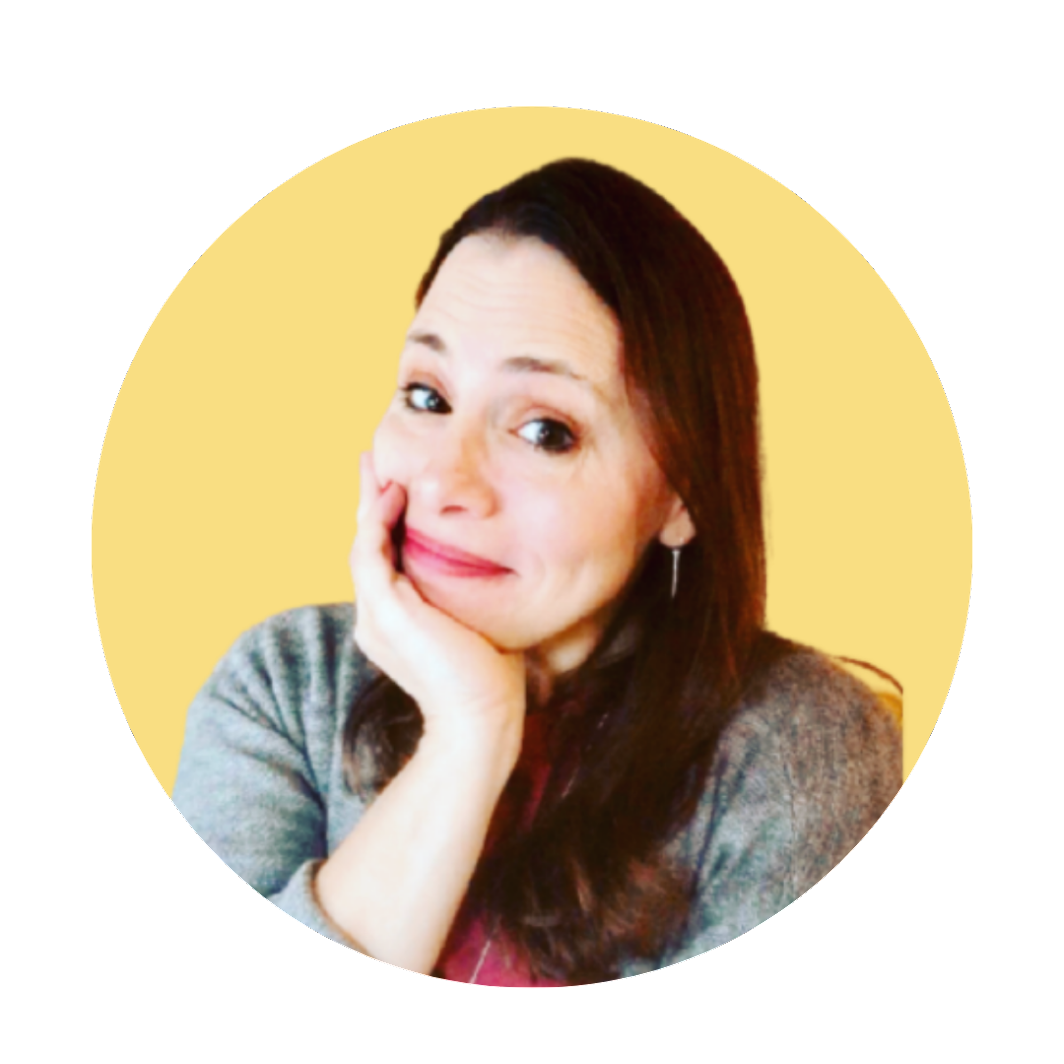
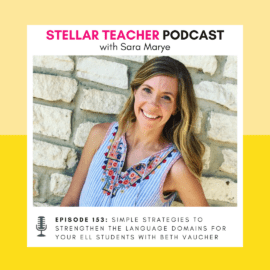
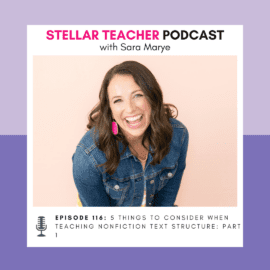
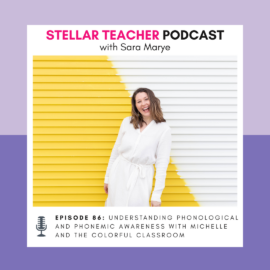
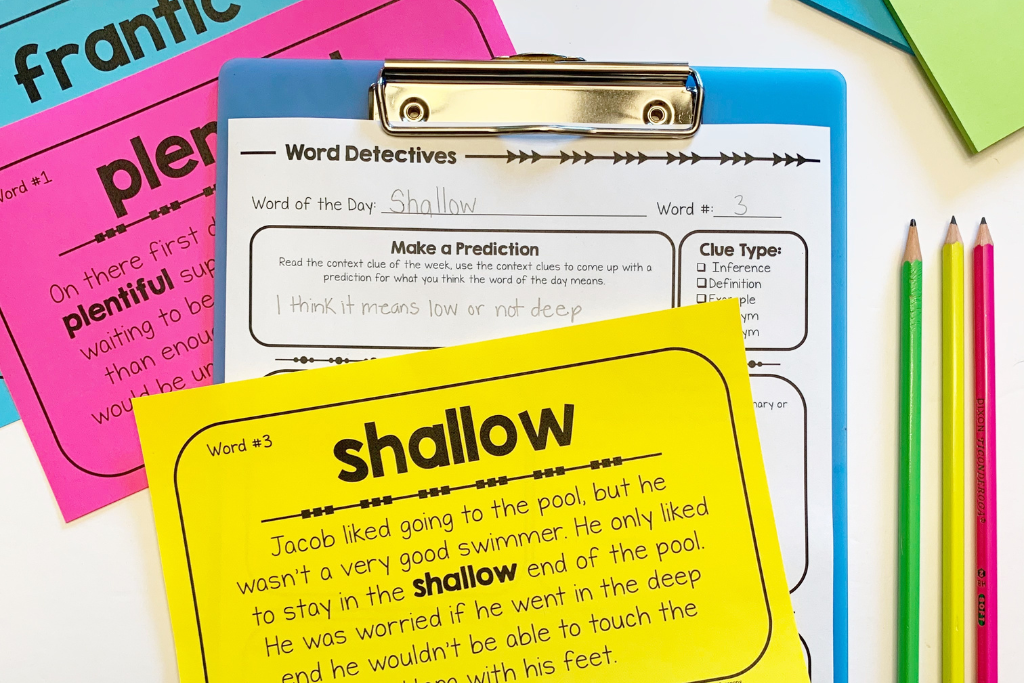
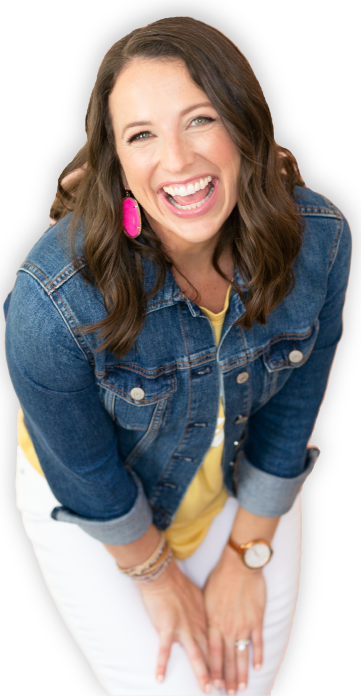
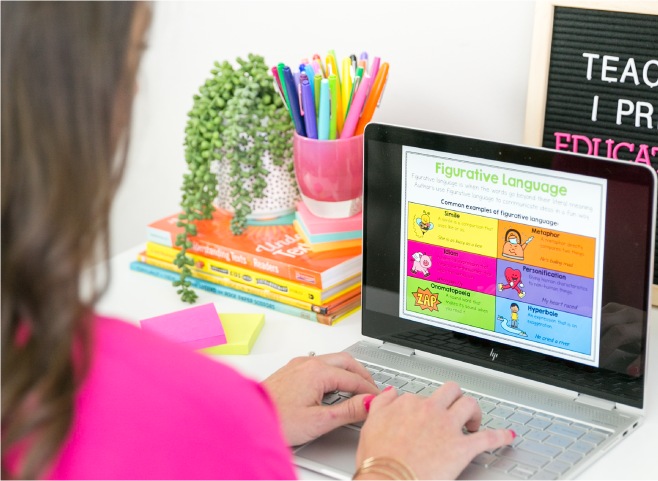
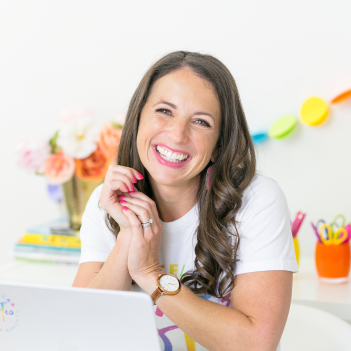
Leave a Comment
You must be logged in to post a comment.